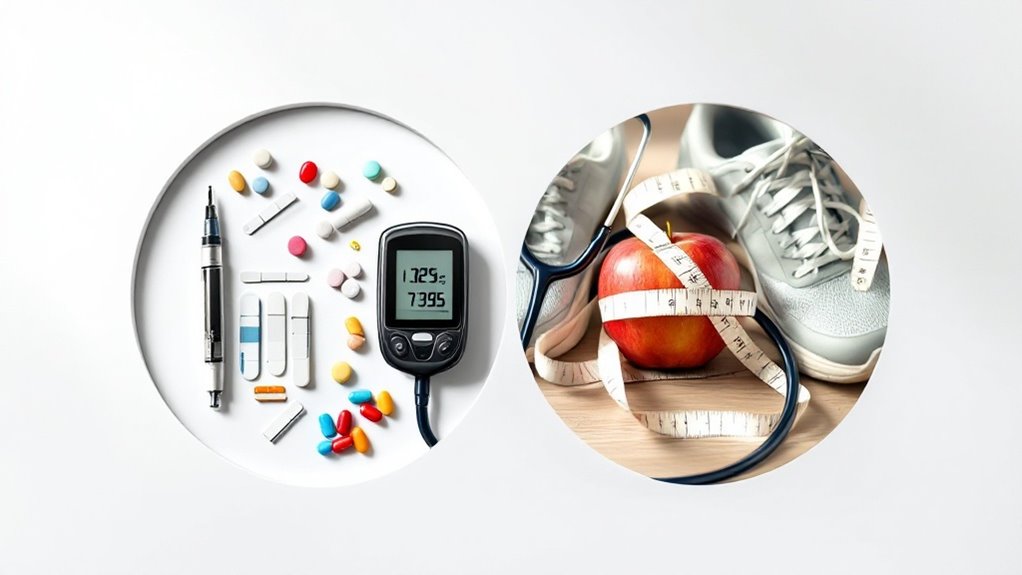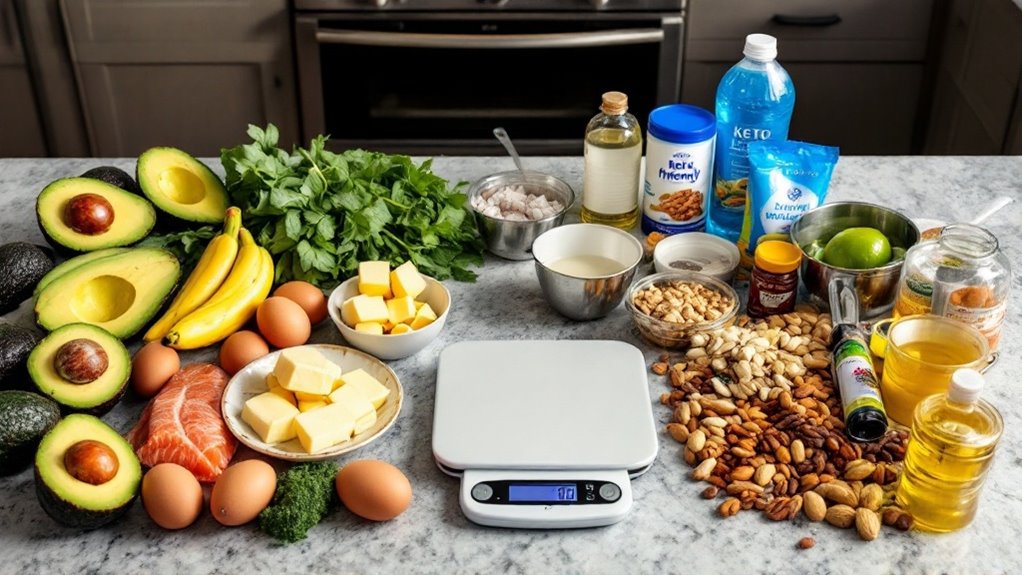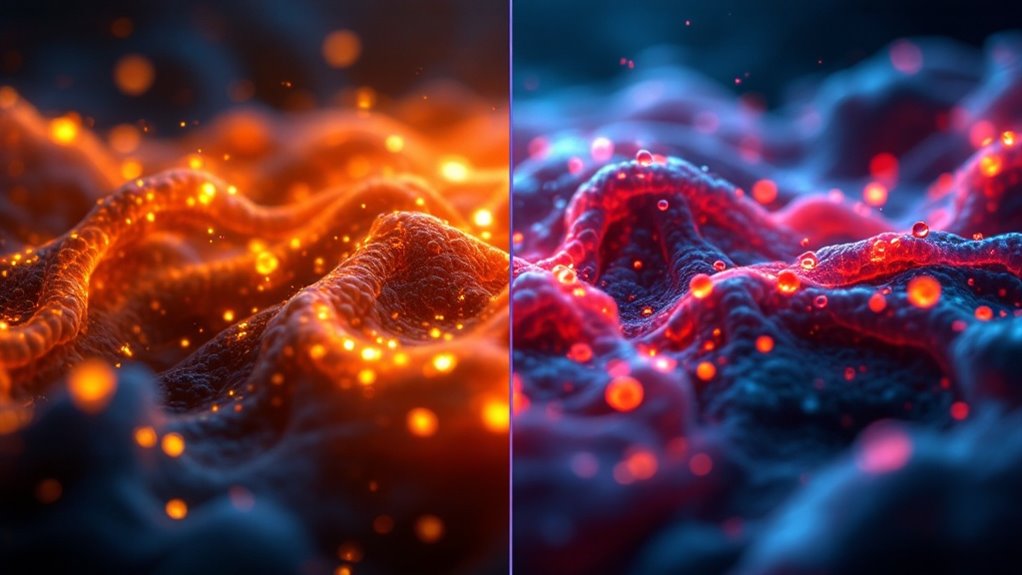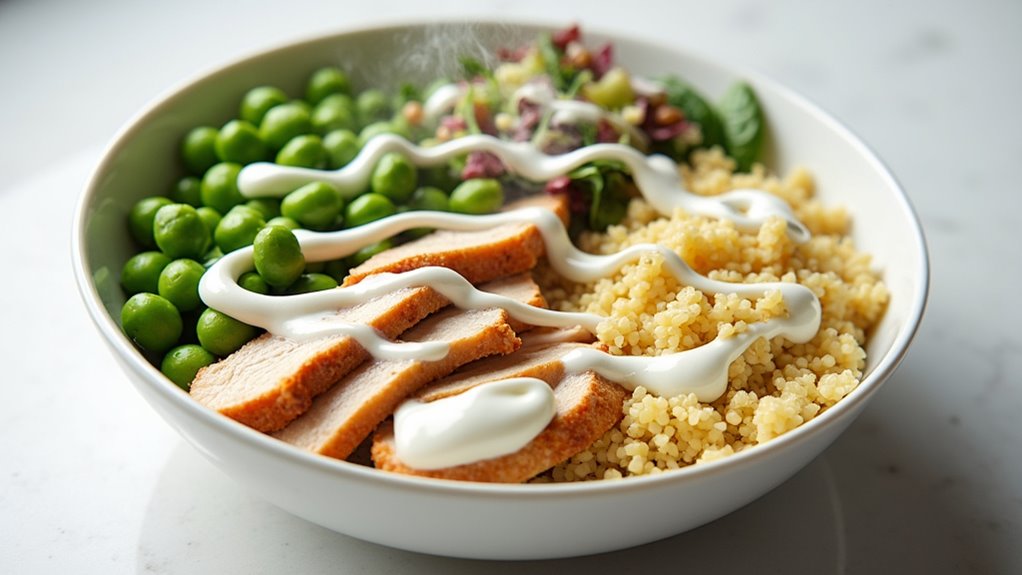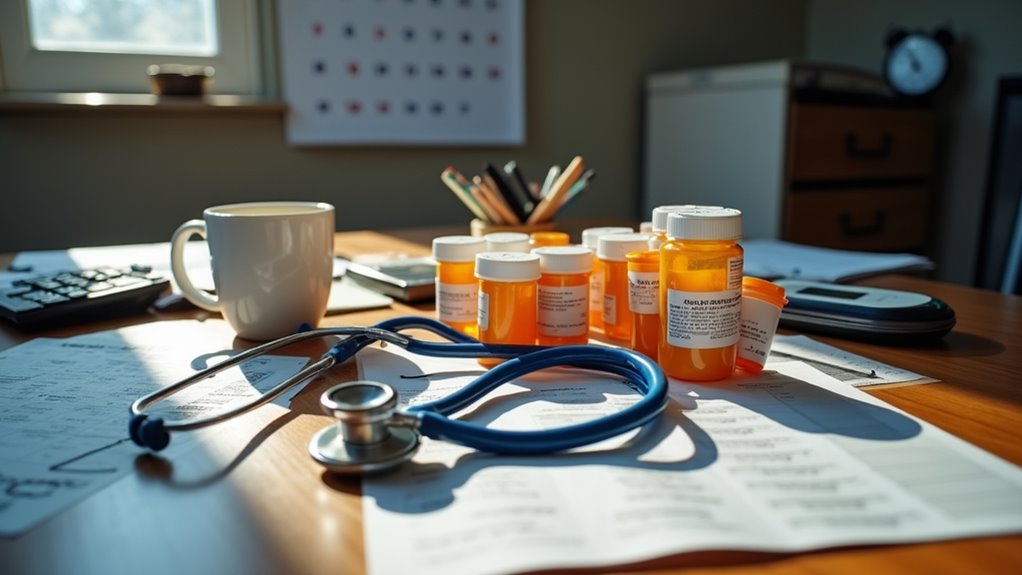Insulin resistance creates a brutal cycle – cells reject glucose, energy tanks, and sugar cravings spiral out of control. The body literally starves while swimming in unused fuel. Chronic fatigue kicks in as cells desperately signal for more energy, triggering intense carb cravings that only make things worse. It’s a metabolic nightmare that affects sleep, mood, and overall health. Understanding this biological betrayal is the first step toward breaking free.

Nearly everyone experiences fatigue and sugar cravings at some point, but when these symptoms become chronic, insulin resistance might be the culprit. When body cells stop responding properly to insulin, blood sugar levels rise, creating a frustrating cycle of exhaustion and uncontrollable urges for sweets. It’s like having a car with a full tank of gas but a broken fuel pump – there’s plenty of energy available, but it’s not getting where it needs to go.
The relationship between fatigue and insulin resistance is particularly nasty. Cells desperately need glucose for energy, but they can’t absorb it properly. Meanwhile, the pancreas works overtime pumping out insulin, like a frustrated parent repeatedly shouting instructions to a teenager wearing headphones. The result? Crushing fatigue that no amount of coffee can fix, and blood sugar levels that bounce around like a ping-pong ball. Poor quality sleep often makes this worse, creating a reinforcing cycle of fatigue. Essential nutrients like magnesium and chromium play a crucial role in maintaining proper insulin function and energy levels.
Those maddening cravings aren’t just a lack of willpower – they’re your body’s misguided attempt to fix the problem. When cells can’t get the glucose they need, they send out desperate “feed me” signals, usually demanding quick-fix carbohydrates. Sure, that donut might provide a temporary energy boost, but it only makes the underlying problem worse. Talk about a cruel joke. Regular strength training exercises can help your muscles respond better to insulin and reduce these cravings.
The impact spreads far beyond just feeling tired and hungry. Insulin resistance triggers a cascade of metabolic issues, including inflammation that can aggravate autoimmune conditions. It’s like dominos falling – one metabolic disruption leads to another, potentially culminating in type 2 diabetes and metabolic syndrome.
The good news? This condition isn’t a one-way street. Early detection is essential, and there are clear warning signs to watch for. Excessive thirst, frequent urination, and unexplained fatigue are red flags. Some people even develop skin tags or dark patches called acanthosis nigricans – the body’s not-so-subtle way of saying something’s wrong.
The key is recognizing these signals before the situation spirals out of control. Because let’s face it: dealing with insulin resistance early is far easier than managing its complications later.
Frequently Asked Questions
Can Certain Medications Cause Insulin Resistance to Develop or Worsen?
Yes – medications can absolutely wreak havoc on insulin sensitivity.
The biggest culprits? Antipsychotics, corticosteroids, and beta blockers top the list. They mess with the body’s insulin response through various mechanisms.
Some heart meds and diuretics are problematic too.
The good news? Certain newer drugs like carvedilol don’t cause these issues. Doctors can often find alternatives that won’t spike blood sugar.
How Long Does It Take to Reverse Insulin Resistance Through Lifestyle Changes?
Reversing insulin resistance isn’t an overnight fix.
Initial improvements can show up within weeks, but significant changes typically take 2-3 months of consistent effort.
Exercise delivers quick wins – just a few workouts can boost insulin sensitivity.
Weight loss helps too. Drop 10% of body weight, watch things improve.
But here’s the kicker: long-term success demands sticking with these lifestyle changes.
No shortcuts.
Are There Specific Genetic Markers That Indicate Higher Risk for Insulin Resistance?
Yes, researchers have identified specific genetic markers linked to insulin resistance.
Key culprits include variants in the IRS1, GCKR, and TMEM163 genes. SNPs like rs920590 and rs2078267 are particularly notorious troublemakers.
Scientists use these markers to calculate genetic risk scores – think of it as a “metabolic crystal ball.”
While you can’t change your genes, knowing your risk can help shape prevention strategies.
Does Irregular Sleep Patterns Affect Insulin Resistance Differently Than Sleep Deprivation?
Yes, irregular sleep and sleep deprivation hit the body differently.
While both mess with insulin sensitivity, irregular sleep primarily disrupts circadian rhythms – it’s like living in constant jet lag.
Sleep deprivation, on the other hand, straight-up tanks insulin sensitivity through hormonal chaos.
Think elevated cortisol and messed-up leptin levels.
The kicker? Sleep deprivation’s effects can reverse with normal sleep, while irregular patterns keep throwing metabolic curveballs.
Can Insulin Resistance Develop During Pregnancy Even Without Gestational Diabetes?
Yes, insulin resistance absolutely develops during pregnancy – it’s actually a normal part of the process.
Here’s the kicker: even women with perfect blood sugar can experience it, thanks to those pesky pregnancy hormones. The placenta pumps out hormones that naturally decrease insulin sensitivity, especially in the second half of pregnancy.
Most women’s bodies compensate by producing more insulin, but some struggle to keep up.

